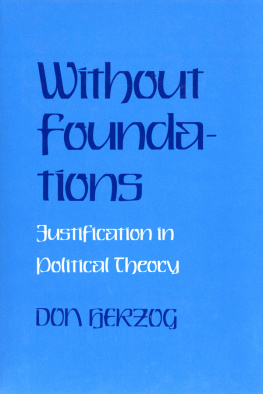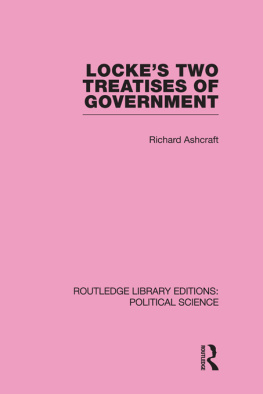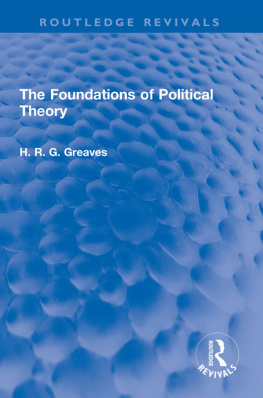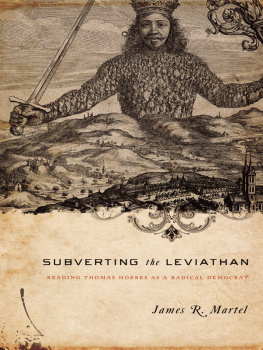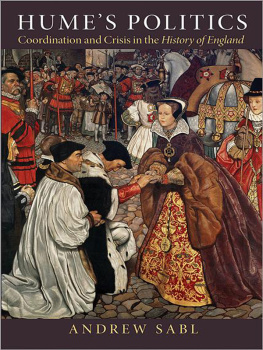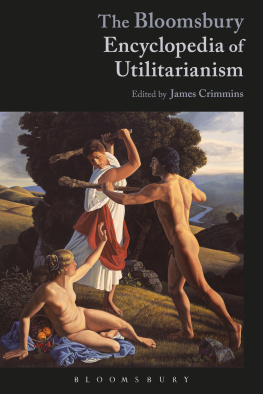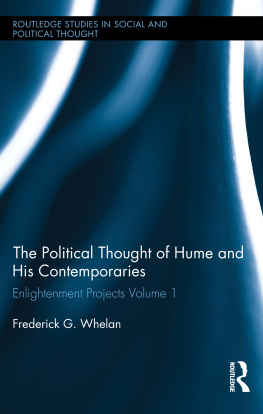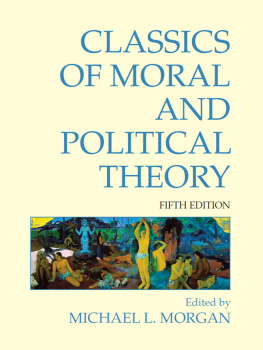Herzog - Without foundations: justification in political theory
Here you can read online Herzog - Without foundations: justification in political theory full text of the book (entire story) in english for free. Download pdf and epub, get meaning, cover and reviews about this ebook. City: Ithaca, year: 1985;2017, publisher: Cornell University Press, genre: Science. Description of the work, (preface) as well as reviews are available. Best literature library LitArk.com created for fans of good reading and offers a wide selection of genres:
Romance novel
Science fiction
Adventure
Detective
Science
History
Home and family
Prose
Art
Politics
Computer
Non-fiction
Religion
Business
Children
Humor
Choose a favorite category and find really read worthwhile books. Enjoy immersion in the world of imagination, feel the emotions of the characters or learn something new for yourself, make an fascinating discovery.
Without foundations: justification in political theory: summary, description and annotation
We offer to read an annotation, description, summary or preface (depends on what the author of the book "Without foundations: justification in political theory" wrote himself). If you haven't found the necessary information about the book — write in the comments, we will try to find it.
Without foundations: justification in political theory — read online for free the complete book (whole text) full work
Below is the text of the book, divided by pages. System saving the place of the last page read, allows you to conveniently read the book "Without foundations: justification in political theory" online for free, without having to search again every time where you left off. Put a bookmark, and you can go to the page where you finished reading at any time.
Font size:
Interval:
Bookmark:

For my teachers
This book is about justification: about how political theorists argue for their views, how they structure their theories, why they draw on some fields and neglect others. Though Ive been immersed in the subject for several years, I still have a glimmering of awareness that justification is one of those more or less arcane topics generally left to professional philosophers. I got entangled (or entangled myself) in the questions pursued here in a perfectly straightforward way, however.
What interested me from the start in political theory was the unabashed concern of that discipline with so-called normative or prescriptive or evaluative matters. Unlike the fabled politician on the stump, political theorists do much more than announce how the world ought to be. They devote themselves to working out arguments on these matters, arguments designed to justify their conclusions. Like everyone else, I suppose, I was initially intrigued by the colorful variety of causes supported in the history of political theory. That very variety, though, provoked worries about the business of arguing. How could political theorists justify their views? Did they have to forge some spectacular bridge over an is/ought gap? Should they find eternal and immutable principles of morality, or could they confidently invoke our shared moral judgments? Could nature serve as a critical standard? Was there a first philosophy of politics that would yield axioms? Such questions motivated this study.
Readers not particularly interested in justification will, I hope, still find much of interest here. There is a large literature on justification, but most of it seems to me just too far away from any concrete issue to be of much use. The introduction and conclusion aside, then, I develop the argument by scrutinizing the works of Thomas Hobbes, John Locke, six utilitarians, David Hume, and Adam Smith. I have not restricted my attention to their major works, so my interpretations involve some shifts of emphasis and some outright departures from the secondary literature. And I have not used these theorists to mount a case for the ancients or against the bourgeoisie: I have not sought to show that their failures dictate reclaiming the conceptual or political world of Athens; nor have I indicted the corrupt cultural content of their works to reveal the limits of capitalism. Instead I have tried to take them simply as theorists advancing arguments. As a result, the interpretations I offer are, I hope, faithful to the texts.
Talk of faithful interpretations may summon up recondite issues in hermeneutics. So a word is in order on the method I adopt in dealing with the history of political theory. Much has been written recently on the importance of history and social context in interpreting texts, and indeed there are good reasons for denying that political theorists escape their times and write works we can interpret without any reference to their contexts. Their agendas are set partly by the burning issues of the day; there are certain things they need not mention explicitly to their audiences, who will take them for granted (as indeed the theorists may); words change their meanings over time; and since social structures change, there will be ways in which their worlds are quite different from ours. These rather banal premises suggest that the interpretation of an authors text must draw on contingent considerations about the authors time. Accordingly, I have been guided here by such considerations, though they are hardly prominent in my text. The text has its contexts, and these are in part historically defined.
I do not believe, however, that history is valuable because it enables us to recapture the authors intentions, to reconstruct the ghostly mental life of Thomas Hobbes as he drafted Leviathan. Hobbes claimed it was:
Though words be the signs we have of one anothers opinions and intentions; yet, because the equivocation of them is so frequent according to the diversity of contexture, and of the company wherewith they go (which the presence of him that speaketh, our sight of his actions, and conjecture of his intentions, must help to discharge us of): it must be extreme hard to find out the opinions and meanings of those men that are gone from us long ago, and have left us with no other signification thereof but their books; which cannot possibly be understood without history enough to discover those aforementioned circumstances, and also without great prudence to observe them.
But the meaning of a text is not bound up in the authors (mentalistically cast) intentions. There are technical reasons for resisting that view of interpretation; it must be extremely hard, even with history and prudence, to have any confidence in an estimation of an authors intentions. But the case against intentions hardly hinges on technical niceties. Divine authorship aside, texts regularly display more and less than the authors intentions: more in that the author may be surprised at some elements of his work; less in that some ideas may never quite make it onto the page.
Interpretation, I suggest, is more like solving a jigsaw puzzle than like conjuring up the ghost in a defunct machine. We want a reading that illuminates the text, that resolves puzzles and doubts, that orders what can be ordered and shows why the rest cant be. The authors own view of the work, in letters or prefaces, may be helpful but can never be authoritative. I can put the point polemically. Interpreting the works of John Locke would present just the same challenges if Locke were a robot, if half the volumes were dashed off by his friend Molyneux, or if they all descended from the starry skies. And if Hamlet is ever written by the fabled monkeys hammering away at their typewriters or by a computer spewing out random letters, interpreting it will pose just the same problems as interpreting the Hamlet Shakespeare wrote.
I owe much to friends and teachers, and happily I have found that the two roles are not mutually exclusive. Isaac Kramnick and Richard Polenberg of Cornell University, still unfailingly helpful, refrain from reminding me what a callow undergraduate I was. Stephen Holmes, Judith Shklar, and Michael Walzer taught me, more than I noticed then, in graduate school at Harvard University. I spent 198283 at the Institute for Advanced Study as Walzers assistant and there revised the manuscript. While I was in Princeton, Amy Gutmann and Bernie Yack of Princeton University provided searching comments; I profited too from talks with Patricia Smith Churchland, Paul Churchland, Michael Doyle, and Allan Silver, all spending the year at the Institute. At various stages, Bruce Fink, Carleton Montgomery, Stephen Newman, Michael Sandel, and Andy Stark have commented on different chapters. I have come to rely heavily on Shelley Burtts painstaking comments.
I hope all these people realize that my more or less gruff reactions were and are accompanied by abiding gratitude.
D.H.
Ann Arbor, Michigan
How can political theorists justify accounts of how the world ought to be? of what obligations citizens of democratic states have? of whether the state is legitimate? of when disobedience might be permissible? of whether liberal societies should pursue egalitarian policies? of what sort of tolerance is due radicals and terrorists? of what interest the state should take in promoting morality?
These questions are my concern. I should emphasize at once, however, that I have nothing to say on any of the concrete issues, tantalizing though they are. This book is about methodology, about the strategies of justification that political theorists use. The blizzard of arguments on concrete issues can become confusing. We begin to wonder just what sort of enterprise political theory is. What are we doing? How can we justify the views we recommend? Here I deliberately step outside the first-order business of arguing for some political views. My aim is to shed some light on the second-order questions. What might be a viable justification in political theory? Such questions of method are hardly interesting in themselves. With a clearer sense of the issues they raise, though, we can perhaps pursue the intriguing political questions in more perspicuous ways.
Next pageFont size:
Interval:
Bookmark:
Similar books «Without foundations: justification in political theory»
Look at similar books to Without foundations: justification in political theory. We have selected literature similar in name and meaning in the hope of providing readers with more options to find new, interesting, not yet read works.
Discussion, reviews of the book Without foundations: justification in political theory and just readers' own opinions. Leave your comments, write what you think about the work, its meaning or the main characters. Specify what exactly you liked and what you didn't like, and why you think so.

